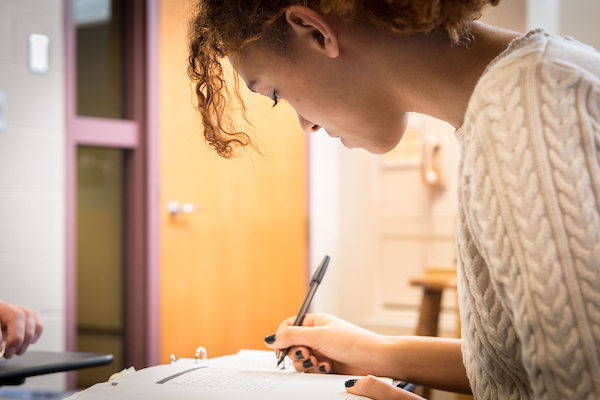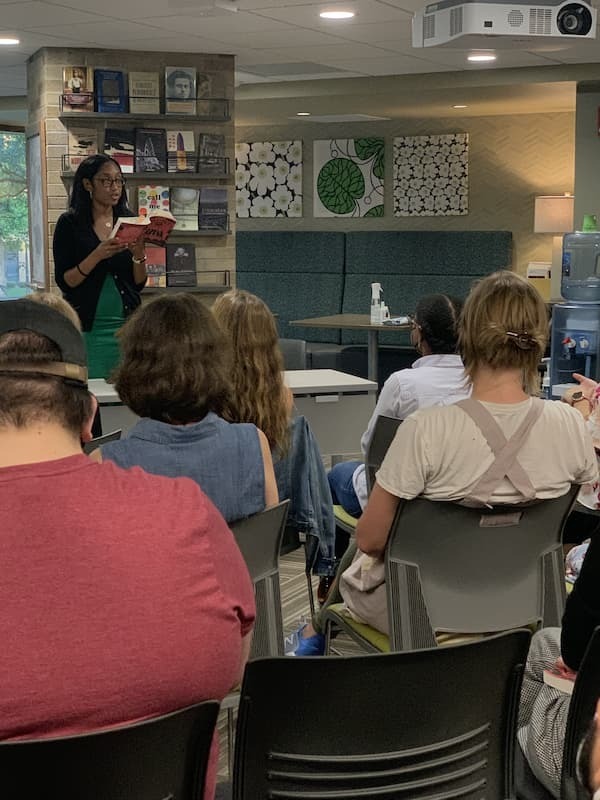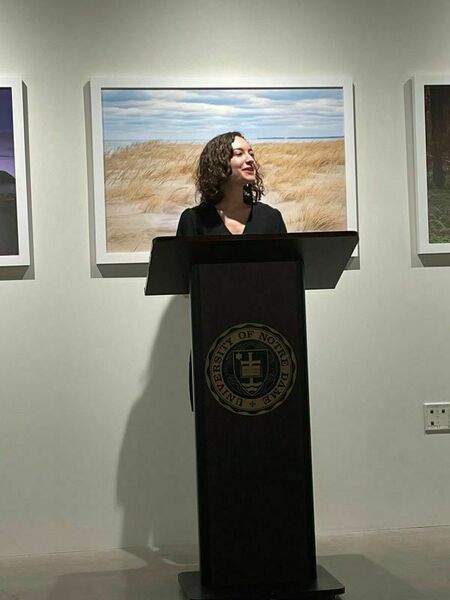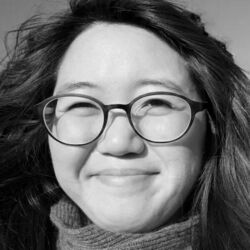Program of study
Our MFA program offers an intense, stimulating immersion in the many ways an author might shape, support and inform a 21st-century writing life.

In addition to workshop and the preparation of a book-length thesis, our candidates choose from Notre Dame’s wide selection of graduate courses. These include gender studies, art and art history, book arts, languages and literatures, and film, television, and theater. To complement their classes and writing projects, MFA candidates teach as well as work on literary journals and presses. They also facilitate outreach programs with our community partners, interact with visiting authors and artists, and conduct their own reading series.
We offer every admitted student full funding in the form of a tuition scholarship and a fellowship which comes with a stipend and responsibilities in the following areas:
- Media and Promotion
- Campus Activities
- Editorial
- Community Outreach
- Our MFA program outreach coordinators work tirelessly to create and nurture partnerships in the South Bend community, with organizations such as the Juvenile Justice Center, the Robinson Community Center, the St. Joseph Public Library, local public elementary schools, and Westville Correctional Facility.
- Teaching
- During their second year, all MFA students are asked to teach a class: Introduction to Poetry, Introduction to Fiction, Introduction to Creative Nonfiction, or Introduction to Creative Writing.
Semester-by-semester guide
Year One, Fall: Rough Draft

It might feel like you’re diving into the deep end: new courses, new colleagues, new friends, new town. But as you get into the swim of things, finding your rhythm, you’ll begin to feel part of a vibrant and engaged literary community. Your workshop will help you take your writing to the next level, while in your lit seminar you’ll practice reading in new and exciting ways. Meanwhile, the pedagogy practicum will help you start making the transition from student to teacher, and your fellowship will connect you to everything going on around Notre Dame. Maybe you’ll organize local workshops or readings. Maybe you’ll helm the undergraduate literary magazine, Re:Visions. Or, maybe you’ll read submissions for the Notre Dame Review. By the time Thanksgiving comes around, you’ll be ready to start thinking concretely about your thesis — and who you want to ask to advise it.
Year One, Spring: The Writer’s Life
As you figure out how to cope with a Midwestern winter, you’ll meet with faculty members and make one of the most important decisions of your MFA: who you want to ask to be your advisor. You’ll also take another workshop, another literature seminar (or maybe a class in another field), and the professionalization practicum. The practicum will help you figure out what kind of writer’s life you want to have, and how to make it happen. You’ll also figure out how you want to spend the summer, and begin applying for workshops, grants, fellowships, or maybe the Sparks internship with a publisher in New York. Oh, and working on your thesis.
Year Two, Fall: Writing is Rewriting
Workshop, seminar, asking smart questions at readings, hanging out with famous writers at the afterparty: by now you’re an old hand, and even mentoring some of the incoming first years. But you’re also learning a whole new relationship to writing as you start teaching your first undergraduate creative writing course. Meanwhile, you’re completing a draft of your thesis and beginning the process of revision.
Year Two, Spring: Final Draft

You’ll spend winter break revising your thesis, preparing to turn in the final draft around the end of February. You’ll take your last workshop, your last seminars, teach some more, and begin planning for what comes next. Maybe you’ll apply for the Sparks Prize or a Fulbright, or go on to a Ph.D. Whatever happens, you’ll have spent two intense years developing as a writer, making connections with peers and mentors, and creating and polishing a serious piece of writing.
For all the details on our program requirements, check out Graduate Student Handbook, (MFA section).
Resources for current students:
- Graduate Student Handbook
- MFA section of Graduate Student Handbook
- The Graduate School Academic Code
- The Graduate School Bulletin
- Student expense report reference guide
- Adding expenses & submitting reports
- The English Graduate Student Association

"My time at Notre Dame reframed the way I thought about writing. I appreciated the program's global outlook on contemporary literature, encouraging varied modes of translation and the pushing of writerly boundaries. Because of the flexible nature of the program, I was able to practice literary journalism as a Letras Latinas Fellow, participate in visual design courses, and work on projects of wildly different registers for my thesis, among other things. I learned to transmute, experiment, and let myself be surprised."